
AsiaDHRRA 2019-2020 Biennial Report
SHIFTING GEARS,
BUILDING PATHWAYS
Chairperson’s Message
In 2020, just when we were about to conclude the implementation of our Strategic Plan (SP) 2016-2020 and major programs – ReCoERDO Asia, FFP-ASEAN, COVID-19 pandemic happened. Apart from global health and well-being concerns, the pandemic also brought socio-economic downturn, which intensified the vulnerabilities of rural communities in the region. But, we remained hopeful, resilient, and committed to catalyzing change onto developing agriculture and uplifting the lives of rural people.
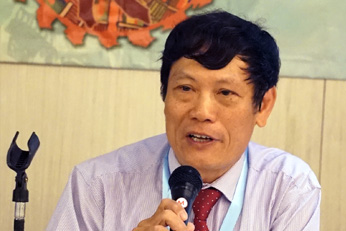
Nguyen Xuan Hong
Chairperson
We are also pleased to report that at the end of our direct five-year support to 17 RPOs, eight have received access to diversified financing mechanisms, 11 have enhanced services to their members, and 10 leveled up their organizational growth stages, which overall elevated their organizational and business operations.
AsiaDHRRA continued to mobilize and forge partnerships amidst the pandemic. In 2020, we inked a Memorandum of Agreement with FAO to bring global development agenda at the regional and national levels. The ASEAN continually recognize us through the SOMRDPE and its Secretariat as we work together to formulate the Rural Development and Poverty Eradication Framework Action Plan 2021-2025 (RDPE FAP) and the ASEAN Rural Development Masterplan (RDMP). We launched the ALERT or the AsiaDHRRA e-Learning Exchanges on Rural Development and Transitions that served as our continuing pandemic-proof online platform for information and experience sharing.
In strengthening the capacities of our member-DHRRAs and partner-RPOs, the results of our organizational growth levels monitoring showed substantial improvements versus five years ago. Our network’s successor generation roadmap planning was also initiated to hone and sustain the next generation of DHRRA and RPO leaders.
This 2020, we also started the series of extensive assessments of our current strategic action plan and ReCoERDO-Asia programming. The results of these assessments were carefully being taken into account as we begin to develop our new cycle of strategic plan for the next five years. Key improvement areas include the synchronizing management systems across the network, sustaining the network’s resources, enhaning our organizational growth framework strategy, supporting RPOs in attaining territorial rural development and agricultural digitalization, climate resilience, and integrating gender and youth in all programs, among others.
With the credibility that AsiaDHRRA has developed globally, as a regional organization working for rural development and poverty eradication in Asia, we are confident that we can further broaden our linkages and elevate the quality of our services as an agricultural agency. We aim to create lasting solutions responsive to the changing contexts brought about by the impacts of the COVID-19 pandemic while remaining grounded to our culture of solidarity and guided by the principle of musyawarah (genuine people-to-people dialogue).
Let this report be a source of inspiration and reminder that we can elevate the socio-economic well-being of more family farmers in the rural areas. This is possible through our sincere commitment, creative solutions, openness to collaborate, strong governance, and, resilience as our guiding principles. A heartfelt gratitude to everyone who accompanied us in this endeavor and hoping for better times ahead of us.
shifting gears…
Global, regional, and national development contexts have rapidly evolved in the past two years and provided the network with a range of challenges to achieving its strategic objectives and long-term goals.
Currently, the world is reeling from the effects and the continuing onslaught of the COVID-19 pandemic. This pandemic is rocking the health system of our respective countries and impacting heavily on the stability of already fragile economies in the region. It has exacerbated the vulnerabilities of the poor and marginalized populations, of which the majority are in the rural communities.
Despite being confronted with challenges, AsiaDHRRA has maintained its position as a reliable partner in fostering rural development and transitions in the region. The resilience and continuous development of our partner rural peoples’ organizations have inspired us to move forward and find ways to uphold our commitments.
The network has now reached the last year of its current strategic plan implementation. Likewise, AsiaDHRRA’s three primary programs: ReCoERDO-Asia, FFP-ASEAN, RAI and Youth Year 2 are on its closing year. While evaluation and/or assessment reports are underway, we are confident that the network has made considerable and concrete contributions at the local, national, and regional levels.
Through our regional programs, our work has concretely contributed to localizing the following Sustainable Development Goals (SDGs) and achieving its targets:
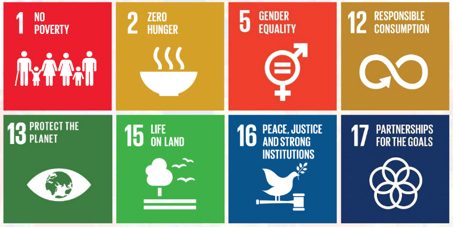


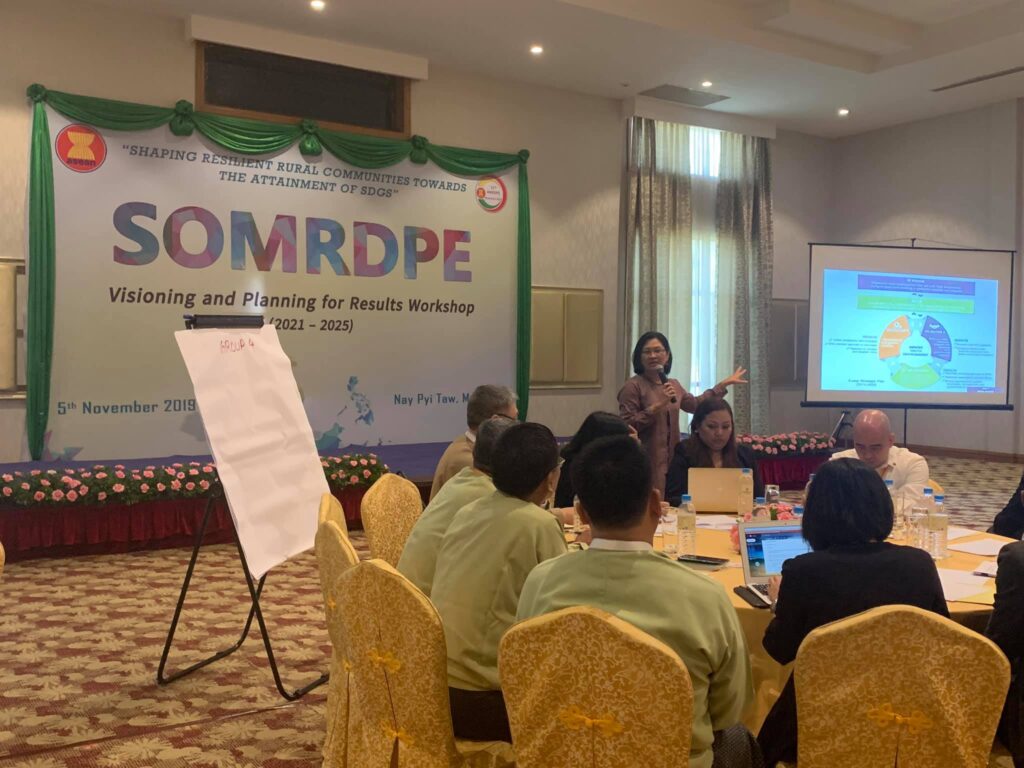
building pathways…
Strengthening RPO Management, Leadership, and, Enterprises
Since 2016, AsiaDHRRA has directly supported 117 RPOs under its regional programs: Farmers Fighting Poverty and Post-Disaster Fund for Local Initiatives.
In 2019-2020, AsiaDHRRA was able to sustain direct support to 17 RPOs. The past two years have been challenging for the network in delivering services to its partner-RPOs due to the financing delays of donors. This necessitated the linking to financial intermediaries that allowed AsiaDHRRA to pre-finance projects amidst delays of funding from external partners.
AsiaDHRRA, its members, and partner-RPOs managed to conduct major cross-cutting activities such as business planning workshops, farm planning and designing workshops, learning exchange visits, and post-disaster agricultural and livelihood rebuilding and assessments. Generally, this resulted in improved business operations of several FOs as indicated by additional services to farmers members, improved value chain activities, increased volume of products and sales, and financial resources of the FOs or cooperatives.
More importantly, the Secretariat also managed to link-up select partner-RPOs with other partners (e.g., government agencies, financial institutions, fair trade groups) to access public services/investments supporting their operations and recommend agri/livelihood rehabilitation and rebuilding development strategies/actions in the areas of Institutional/Capacity Building and Organizational Development, Agro-Enterprises Development (Economic) and Policy Advocacy.
With the onslaught of the COVID-19 pandemic, we have managed to re-allocate some of our existing resources to support RPO’s initiatives such as, for instance:
In the Philippines:
- support to digital connectivity, social amelioration programs for ISLACO members thru provision of seeds, organic fertilizers, planting equipment, and transportation support as primarily demanded by women organization;
- support to MARCCO’s improvement of its processing center (cold storage, sorting center, etc.) to improve storage capacities, thus reducing further losses brought by transport constraints;
In Cambodia:
- supported members of FNN for the establishment of their water systems and their cash crop production;
In Indonesia:
- through KSPS, supported a joint action among RPOs to bring rural produce to urban consumers, to facilitate seed exchange and training on diversified farming in response to this pandemic.
So far, some of the partner-RPOs are able to move up or sustain operations:
- 8 out of 17 RPOs have access to diversified financing mechanisms such as membership capital buildup, microfinancing, credit line, government grants, and business profits (not only development grants), indicating improved business operations and clarity of business roadmap;
- 11 out of 17 RPOs improved services (product development, credit and savings, processing, extension, marketing, market access, market consolidation) to members;
- After 2-3 years since 2017, 10 out of 15 RPOs leveled up their organizational growth from Consolidation/ Vegetative (Level 2) stage to Autonomy/ Flowering (Level 3) and Advancing/ Fruiting (Level 4) stages.
– 8 RPOs moved up from Growth Level 2 to Level 3
– 1 RPOs moved up from Growth Level 2 to Level 4
– 1 RPOs moved up from Growth Level 3 to Level 4
– 5 RPOs do not have comparative results
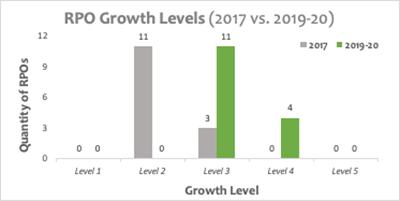
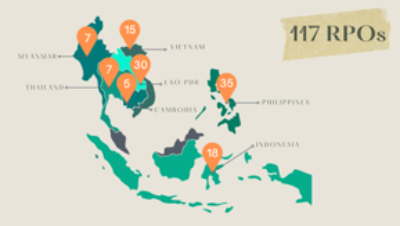

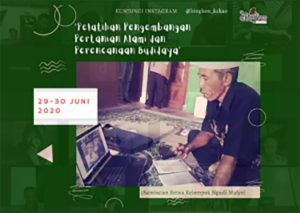

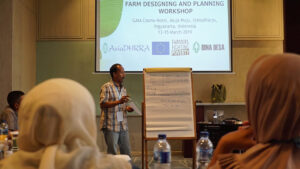
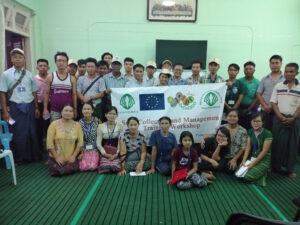
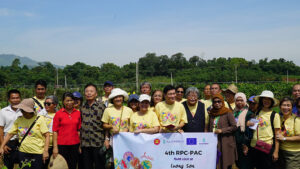







CSO-RPO-Public-Private Partnership Building and Policy
AsiaDHRRA continued to be a reliable partner on rural development as manifested by its concrete partnership with global and regional development institutions such as EU, FAO, and ASEAN SOMRDPE.
In 2019, AsiaDHRRA worked with EU and other fellow-FPA signatories to co-organize the EU’s regional policy forum on development – an important stakeholders’ meeting about EU’s agenda and programs.
AsiaDHRRA has recently signed a Memorandum of Understanding (MoU) with FAO to ensure localization of global development agendas (e.g., responsible agriculture investment, family farming, SDG 2030) into regional and national initiatives. FAO recognized AsiaDHRRA as the “regional leader in building partnerships to empower farmers.”
The MoU is just an institutionalization instrument of our long withstanding partnership with the FAO globally and regionally. The MoU is also a tool to strengthen engagement at national levels of DHRRA members.
Early this year, FAO-RAP, AsiaDHRRA, ThaiDHRRA, and local partners, co-organized the CSO consultation for the 35th FAP APRC in Bangkok in preparation for the 35th FAO Asia-Pacific Regional Conference (APRC). During the 35th APRC, we have actively participated by representing the CSOs and voicing the position, inputs, and agenda of the CSOs, including the calls under the UN Decade for Family Farmers (UNDFF).
With support from EU and FAO, we have launched this year a monograph on “Engaging ASEAN youth on Responsible Agriculture Investments,” which highlights the importance of engaging and empowering youth in agriculture, building awareness of RAI at the global, regional, and national levels, and, strengthening networks and creating platforms for advocacy action.
At the country level, CamboDHRRA, LaoDHRRA, MyanDHRRA, ThaiDHRRA, PhilDHRRA, and VietDHRRA are continuously advocating for policies and program supportive of beneficial youth engagements in agriculture.
We are confident that this MoU with FAO will allow us to forge broad-based FAO-CSO-RPO engagements at the regional and national levels and support the mobilization of resources to translate priority work areas in the MOU into concrete actions and results.
Another significant gain of AsiaDHRRA in the last two years is the stronger recognition by the ASEAN Secretariat and the ASEAN Senior Officers for Rural Development and Poverty Eradication (SOMRDPE). AsiaDHRRA co-organized the 8th ASEAN PPPP Forum on Rural Development and Poverty Eradication and related side events of the biennial RDPE Ministerial Meeting.
An important outcome of the said initiative was the approval of AsiaDHRRA’s recommendation for ASEAN to formulate the rural development masterplan to provide a cohesive guiding framework for rural development and poverty eradication in the region. ASEAN SOMRDPE has also tapped AsiaDHRRA to assist in formulating of the 2021-2025 ASEAN Framework Action Plan on RDPE, which will also serve as a basis for crafting the ASEAN Masterplan on Rural Development and Poverty Eradication.
We have also launched an online platform: ALERT (AsiaDHRRA e-Learning Exchanges on Rural Development and Transitions) to learn and share the experiences of family farmers and the rural communities in general during this pandemic.
In summary, AsiaDHRRA continued to strengthen its regional and global engagements in the last two years and was able to:
- Work across different sectors or partners (e.g., Grow Asia, FAO HQ, and RAP, local and international CSOs, national government and intergovernmental bodies, etc.);
- Get ASEAN’s approval on its proposed drafting of the ASEAN RD Masterplan;
- Have a stronger presence at the national level as a result of the recognition of AsiaDHRRA-DHRRA linkages and concrete work on ground by different partners; and
- Improve AsiaDHRRA’s credibility in Rural Development work at the global, especially, regional level and be recognized as one of the lead CSOs in rural development working with grassroots communities.
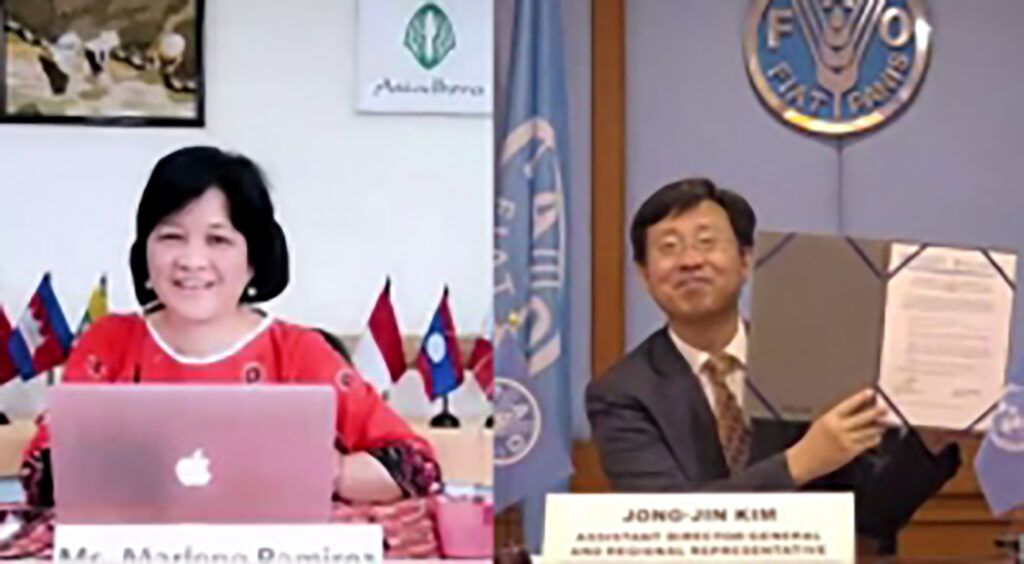


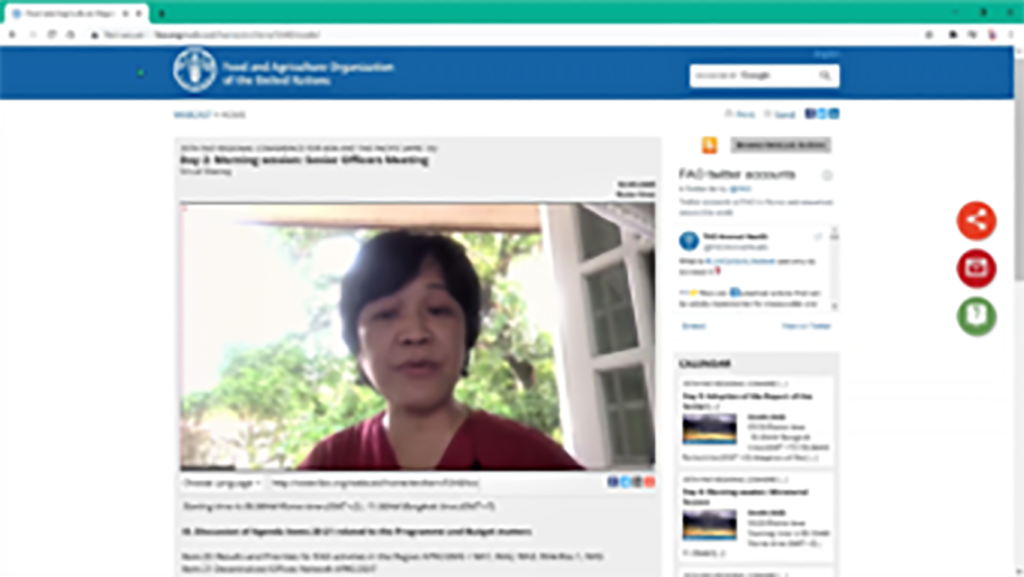





Strengthening Network’s Capacity in Providing Services to RPOs
For the last two years, AsiaDHRRA has had significant accomplishments in strengthening its internal organizational capacities. The implementation of ReCoERDO-Asia has substantially fuelled the operations of the network. Internal quality control mechanisms have been installed and improved; and, its initial roll-out of activities to members and partners has been done.
These improved operations could be validated with positive results of partners’ evaluations, including EU’s Results-Oriented Monitoring and Christian Aid’s POCRA; and the story features in official publications and partners’ reports, including UNESCAP and EU-ASEAN.
Through the organizational development and capacity building support from ReCoERDO Asia, AsiaDHRRA and the DHRRAs have shown growth as indicated by respective organizational growth levels. In 2016, the majority are on the Startup and Consolidation stages while few are standing on the Institutionalization and Niching stages. Four years later, none of the DHRRAs occupying the early growth levels but instead stepping up to mature stages of organizational transformation.
Successor generation roadmap planning has been initiated, aiming at sustaining and enriching the human resources and future leaders of the network.
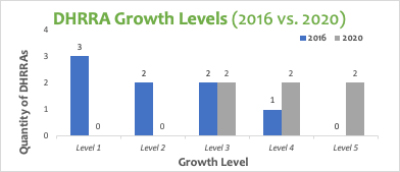
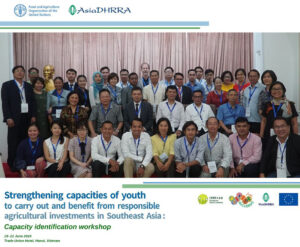
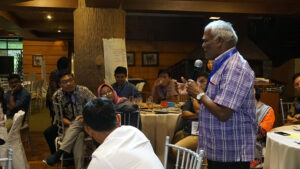
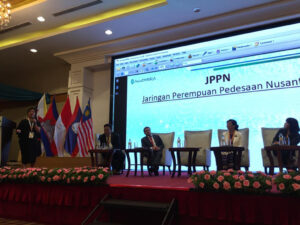
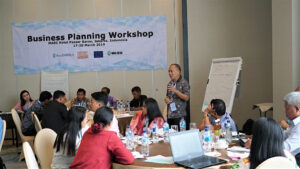
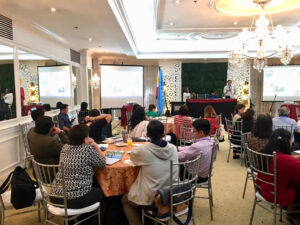
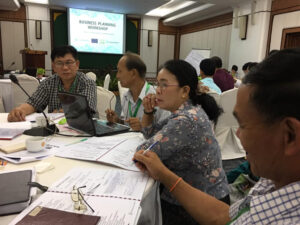
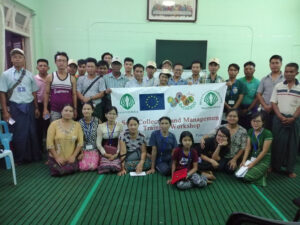
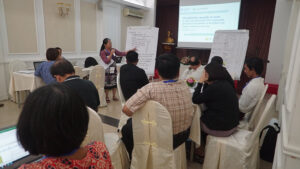






DHRRAs in Focus
In brief, here are some of notable DHRRA milestones.
CamboDHRRA continues to blossom through expanding its multi-stakeholder platform (National FOs, CSOs, and private sectors), honing its project cycle management (integrating gender-sensitive M&E, Agricoop governance, etc.), and gearing up its new 5-year strategic plan. They also lead the RAI for youth advocacy on the national level.
InDHRRA/ Bina Desa’s support in strengthening agri-enterprises of partner RPOs, especially on market linking, resulted in remarkable growth in the operations, profits, and services provided to their members. Some promising RPO platforms were also formed, such as JPP Nusantara (Archipelago Rural Women Network), which strongly advocated mainstreaming of gender in agriculture as part of the RDPE Framework.
Distinct from others’ advocacy, DHRRA Malaysia proved that civic space for CSOs is not shrinking but expanding. They were able to advocate policies to address statelessness issues in the country, which positively resulted in a commitment from the Parliament Minister of Home Affairs to proactively and speedily resolve all matters concerning citizenship applications. Covid19 pandemic also sprung opportunity for them to respond immediate action through COVIDCAREMY where they provide mental health support, aside from relief needs, to affected vulnerable communities.
JaDHRRA sustained its academic partnerships in promoting a deeper appreciation of rural communities’ struggles and successes to urban youth through immersions and practical activities. This time, they introduced manual rice cultivation, organic linseed/ flax farming, and mountain rehabilitation to the young students of Kobe University.
Maximizing the advanced technical and technological resources in South Korea, KoDHRRA hosted the 3rd North-South Learning Exchange Visit in September 2019, which sparked inspiration to other RPOs in the South to upscale their competitive advantage through applying some innovative solutions introduced to them.
Slowly but surely, LaoDHRRA formally institutionalized its operations building upon its policy manual, dynamic organizational structure, and a new set of the secretariat and board members, who are focused on beefing up the overall organizational development processes to move forward with solid foundations.
MyanDHRRA’s opportunity to co-host/convene the 8th ASEAN RDPE related meetings in November 2019 paved the way for stronger relationships between and among the Myanmar CSOs and DRD, resulting in concrete follow thru actions such as access to potential project resources and long-term partnerships.
As a network of NGOs, PhilDHRRA was able to maximize their membership base in strengthening thousands of small-scale farmers through capacity building and livelihood interventions in the areas of agri-enterprise development, sustainable and organic farming, CCA, and a social enterprise project – BRESCO project, which aimed at empowering small coffee growers to bring their excellent-quality green coffee beans into the market.
ThaiDHRRA re-launched its organization with a concrete operations manual and a solid 2020-2024 Strategic Action Plan. Their opportunity to co-organize CSO consultation for the 35th FAO-APRC opened windows of opportunities for future collaborations with other CSOs, RPOs, and academe to work on common agenda.
VietDHRRA’s broad network base among rooted agriculture and rural development organizations/ academe (such as VNFU, NVCARD, VACVINA, etc.) enabled them to strengthen their capacity building interventions to partner CSOs and RPOs on the agenda encompassing project development and management, public-private partnerships, and, youth-gender sensitive agri-cooperative governance and participation.
Financials
Comparative Revenues in EURO (per year)
Comparative Revenues in EURO (per project)
Comparative General Breakdown of Expenses in EURO
Comparative Direct Program Expenses in EURO
DHRRA Reports
2020 Report to the General Assembly
The Secretariat
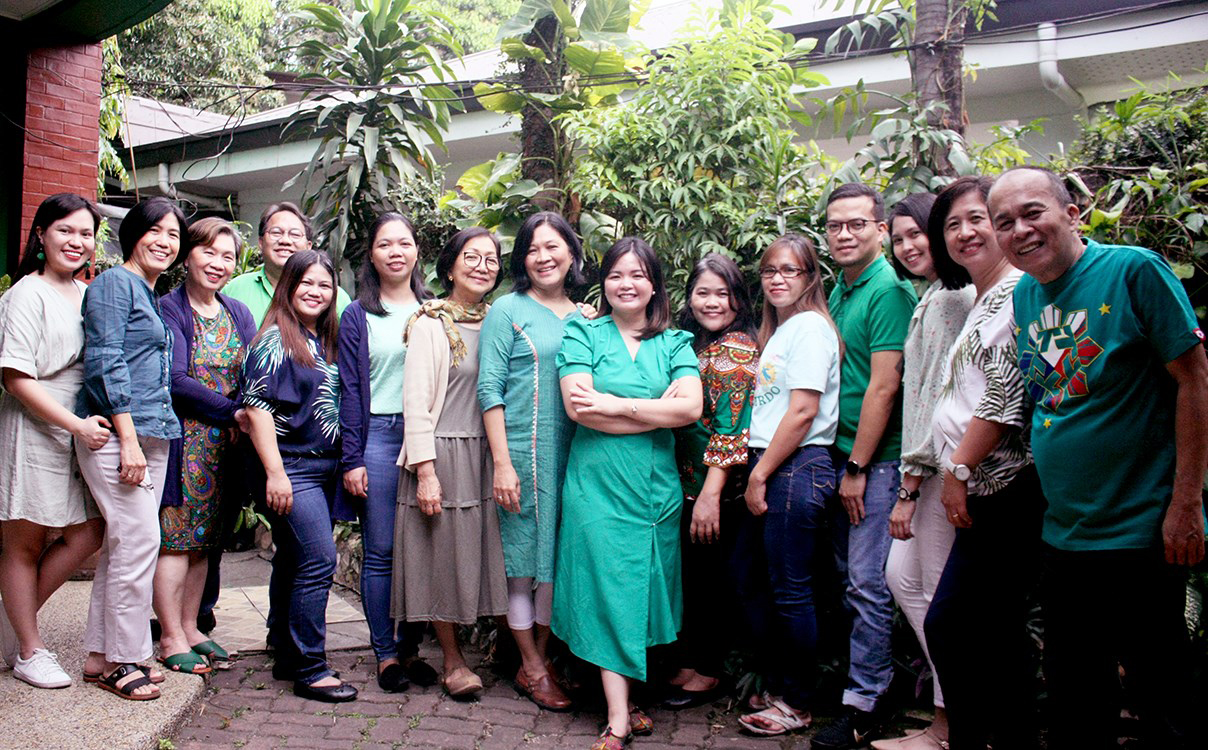
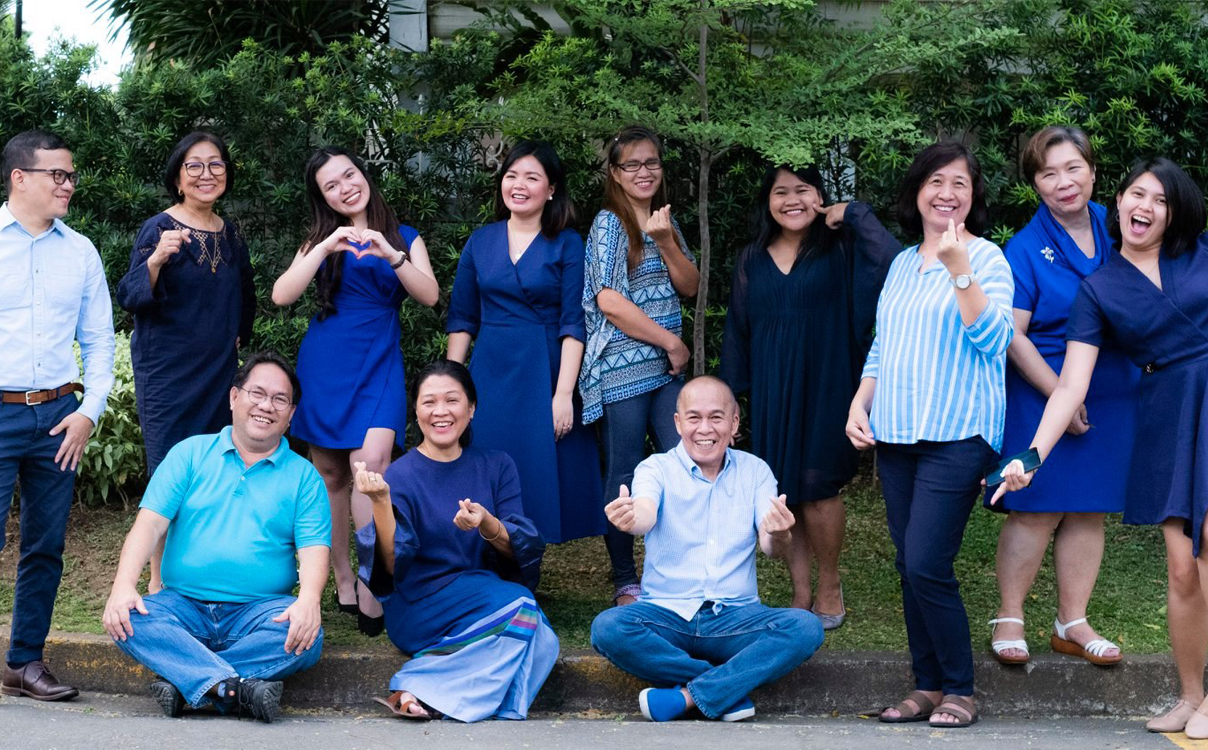
Know more about the AsiaDHRRA Secretariat HERE
Contact Us!
AsiaDHRRA
Room 201 Partnership Center
59 C. Salvador St., Loyola Heights 1108,
Quezon City, Philippines
Telefax (632) 436-4706
Asiadhrra is:
- An affiliate of ASEAN
- An NGO in Special Consultative Status with the Economic and Social Council of the United Nations (ECOSOC)
- A member of AgriCord
- Member of World Rural Forum